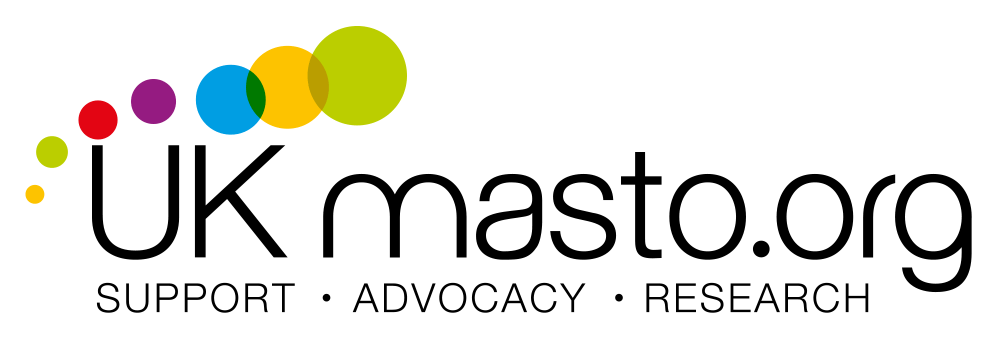Advocacy
The UK Mastocytosis Support Group works to ensure that mast cell disease patients get diagnosed quickly and receive optimal treatment.
Access to care
Because Mast Cell Diseases are rare (or rarely diagnosed), it can be difficult to find a knowledgeable doctor. We work to direct patients to experienced doctors as close to home as possible.
In the case of mastocytosis, the community of doctors able to treat patients is reasonably well-established (though new doctors appear and others retire) and we seek to ensure that patients are getting referred to doctors who are able to accurately diagnose the condition and to treat the range of symptoms that may arise.
With mast cell activation syndromes and hereditary alpha-tryptasemia, both newly identified conditions, there is a smaller community of physicians willing and able to diagnose and treat. This shortage of doctors is not optimal and is something we seek to change.
Access to existing medications
We work to ensure a steady supply of medications that are already on the market and are used to treat mast cell diseases.
The antihistamine and mast cell stabiliser Ketotifen is occasionally in short supply. We have a well-established relationship with the company that supplies this in the UK and seek to share up-to-date information about availability and the latest ordering instructions. If you have questions about access to Ketotifen please email us for the latest information.
Epipens have also been in short supply in 2018. The charity, Anaphylaxis Campaign, has up to date information about the availability of injectable epinephrine and how best to obtain it. The latest news can be found here.
If you are having trouble getting any of your prescribed medications, let us know.
Promotion of new treatments
We share information about upcoming and ongoing drug trials in Mast Cell Diseases and maintain contact with pharmaceutical companies and the regulatory bodies that oversee the approval and funding processes for new medications.
One message that we want pharmaceutical companies to hear is that approval of a medication is not enough. It must also be funded by the NHS in order for patients to have benefit from the medication. That means that the trials must incorporate the collection of sufficient data to demonstrate improved quality of life.
Recognition of MCAS
At present, Mast Cell Activation Syndrome is a condition that suffers from insufficient recognition in the UK medical system. While it has been recognised in America by their Centers for Disease Control (CDC) as a condition (with its own ICD-10 code), it has not yet received such a code in the ICD codes used worldwide by the World Health Organization.
While there is still much to be learned about MCAS, we are in no doubt that there are many people in the UK who are suffering from the abnormal activation of mast cells. Those patients need recognition of their condition and a concerted effort to provide support and treatment. We are one of several charities who seek to improve the care of MCAS patients in the UK.
Exhibiting at medical and other conferences to ‘spread the word’ about mast cell diseases
We regularly send teams to medical conferences to share information about diagnosing and treating mast cell diseases. Our materials emphasise the need for epipens, the need to treat symptoms in multiple body systems (including the GI tract and bones, which can be overlooked in mastocytosis), and the need for ongoing monitoring of patients.

